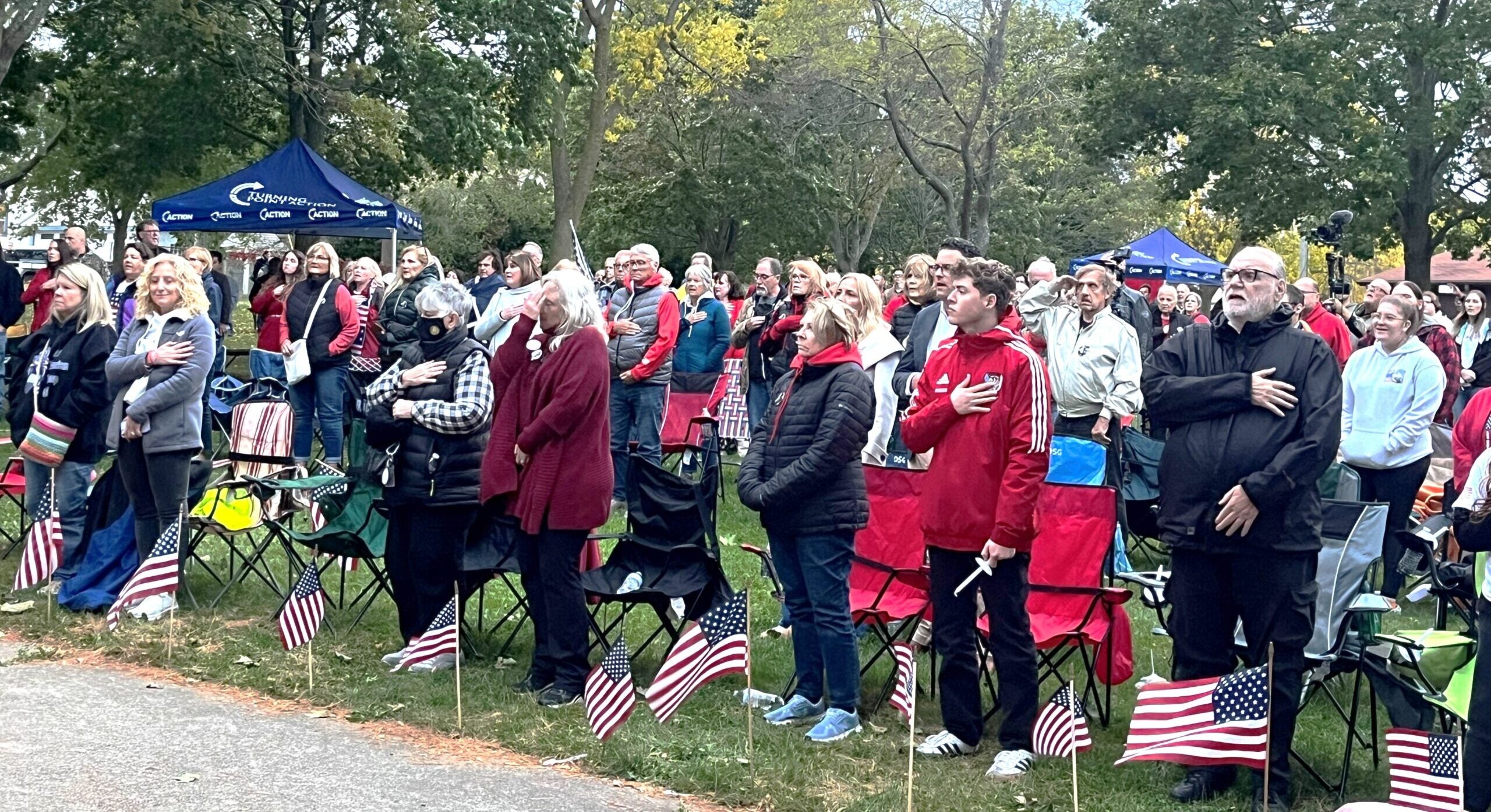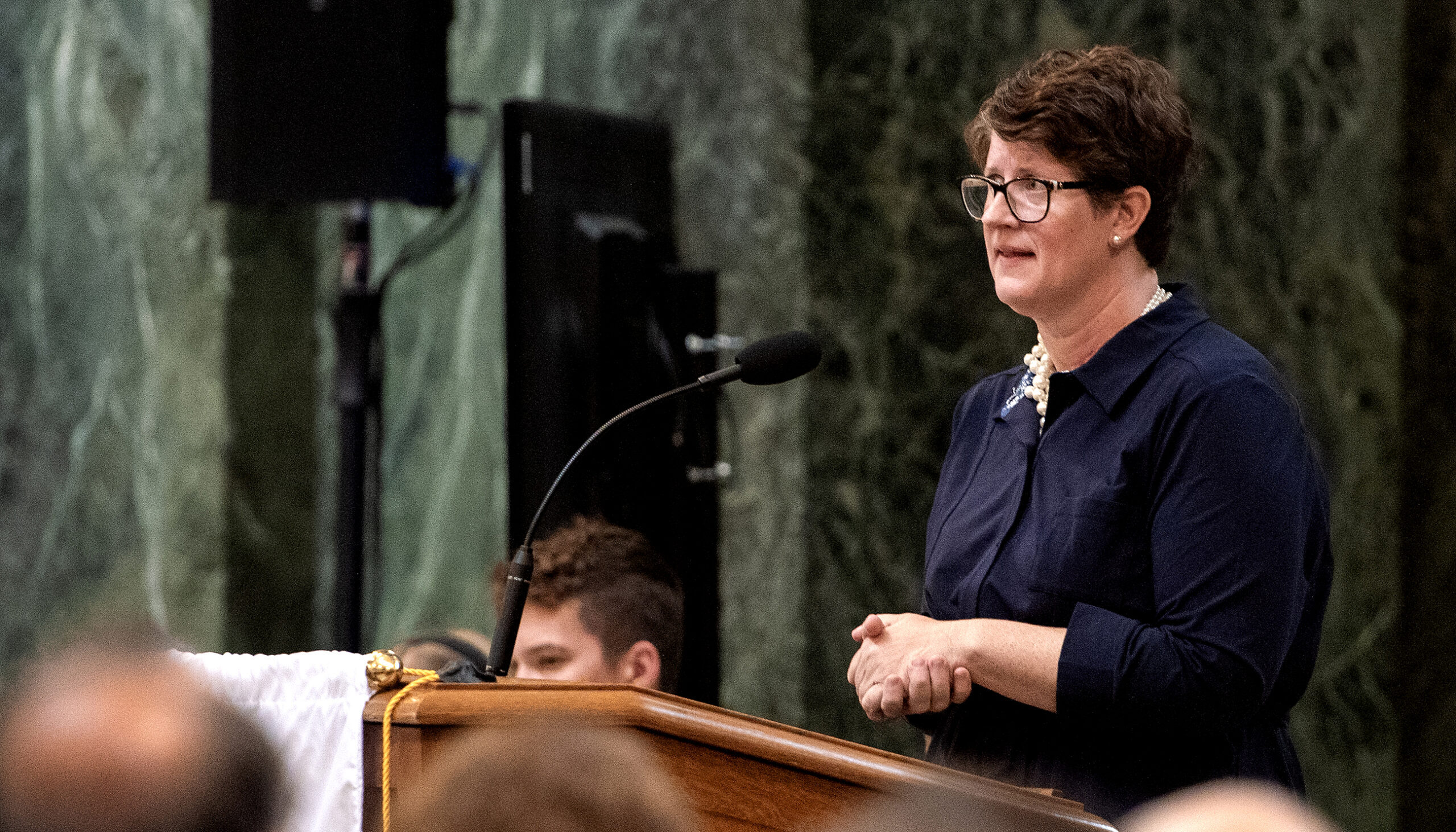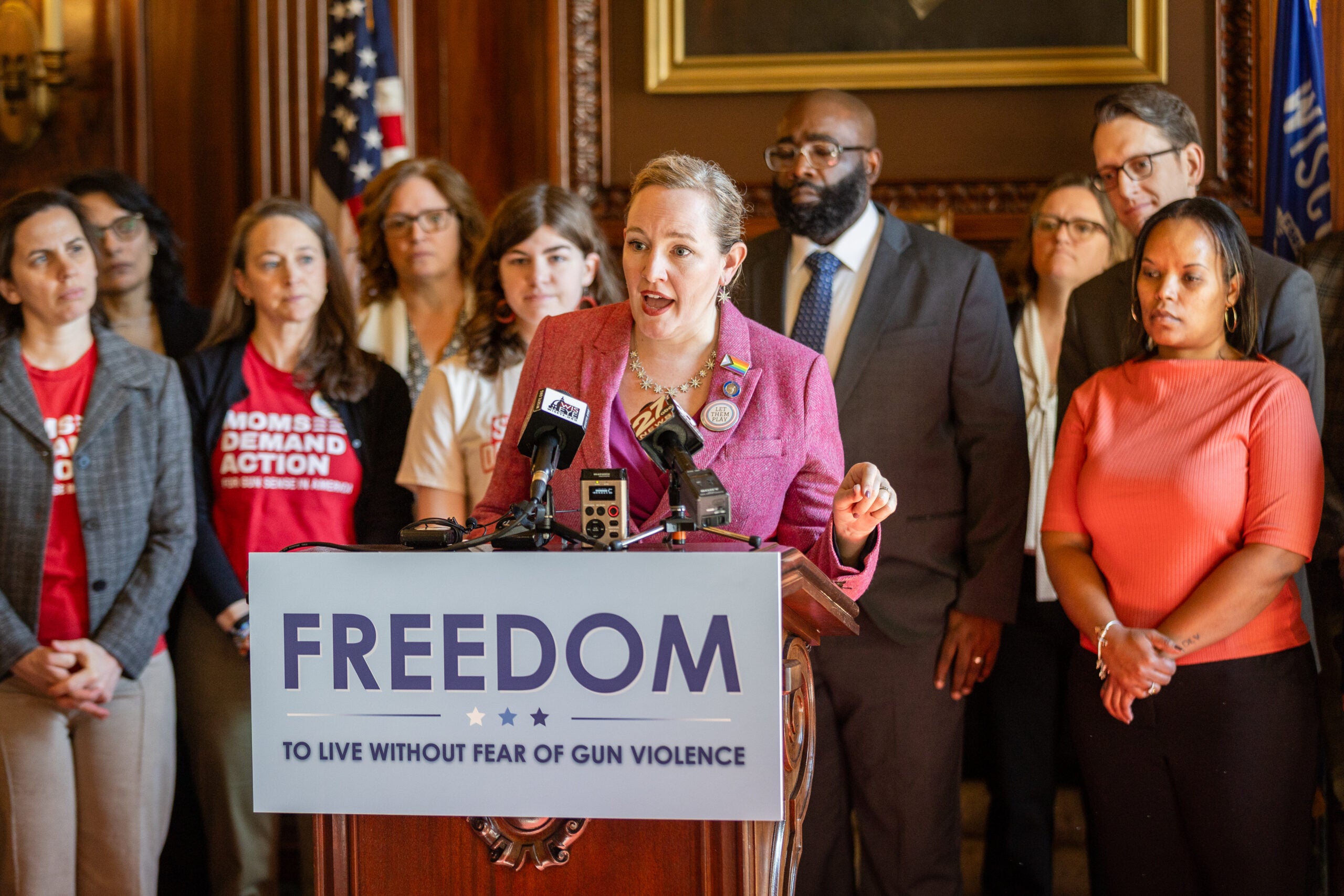Chokwe Antar Lumumba, the mayor of Jackson, Miss., says he’s known in his home state as “unapologetically progressive” — a “radical” with “a propensity to talk about some of the larger things in life.”
But when it comes to running for office, he says he’s learned that when you knock on a neighbor’s door, they’re more likely to care about the pothole on their street getting fixed than discussions of discrimination.
Lumumba gave this example during his keynote speech during the Black Advocacy Day at the state Capitol in Wisconsin on Thursday. He went on to explain that everyday challenges are connected to systemic struggles, like representation in government.
News with a little more humanity
WPR’s “Wisconsin Today” newsletter keeps you connected to the state you love without feeling overwhelmed. No paywall. No agenda. No corporate filter.
“Your problem is that you don’t control the decision-making process that leads to a pothole being fixed,” Lumumba said.
He said if people of color want to improve their lives, they must be the solution, including by running for office.
“We have to be the calvary that we’ve been waiting on,” Lumumba said. “We have to be the catalyst of change.”
The proportion of Black legislators in the state has increased over the past half-century, according to Wisconsin’s Legislative Reference Bureau. But of the more than 5,650 people who are estimated to have served in the Wisconsin State Legislature since 1848, only 33 have been identified in the press as Black or African American.
Out of 132 total state senators and representatives, there were 10 Black legislators in the 2023 legislative session.
“You lack the self-determination to dictate the quality of life you so justly deserve, right? That’s the problem that we have,” Lumumba said.
Lumumba said change is possible at the community level.
“We have to understand that it doesn’t exclusively take place in the halls of the Legislature,” Lumumba said. “We need community on the grassroots level to be engaged, to maintain the pressure that leads to that change happening.”
Lumumba drew parallels between Mississippi, Wisconsin and the country.
“As we talk about whether there are efforts to ban books in Wisconsin, just like there are efforts to ban books in Mississippi, that we come together and develop a strategy collectively in how we address that,” Lumumba said.
Lumumba said representation in leadership is the key to moving from suffering to Black excellence.
“If we truly are our ancestor’s wildest dreams, then where are we positioning ourselves to disrupt the status quo?” Lumumba said.
Also speaking Thursday was Malcolm Kenyatta, the first openly LGBTQ+ person of color to become a member of the Pennsylvania General Assembly in 2018. He encouraged people of color to connect love with justice to create change.
“(It’s possible by) addressing the systematic racism, addressing the systematic challenges that have confronted folks of color for too long, not just here in Wisconsin, but in every single part of our country,” Kenyatta said.
The Black Legislative Action Coalition of Wisconsin, which includes the Wisconsin Legislative Black Caucus, organized the event to conclude Black History Month. In addition to the speaking program at the Capitol, the event offered community members workshops on the political process and advocacy training.
Wisconsin Public Radio, © Copyright 2025, Board of Regents of the University of Wisconsin System and Wisconsin Educational Communications Board.







